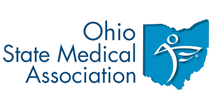Now Open
Getting ready for surgery
Preop Optimization
Medical conditions
When having joint replacement surgery, most of us think that the day of surgery will define how we do afterwards. The day of surgery is certainly important, it is the major focus of The Robotic Joint Replacement Institute. Advanced technologies are used to make sure that the surgery itself goes as perfectly as possible. Unfortunately, complications can and do happen. One of the other major focuses of our Institute is to try to reduce complications before they occur.
One of the most important ways to ensure that surgery goes well and postoperative recovery moves quickly and smoothly, is to go into surgery prepared. Medical director, Dr. Suresh Nayak and his team, will discuss the preoperative preparations with each patient on an individual basis to ensure that each and every patient is as prepared for surgery as possible.
In fact, Dr. S Nayak and his team have developed OrthoVitals, a platform that assesses preoperative risks. The risk-assessment is calculated based on medical, functional, social, and educational assessments pre-operatively. The patient and physician can then discuss how to reduce any risks before surgery resulting in better outcomes.

By identifying and optimizing possible risks before joint replacement, surgeons and patients will ensure a better outcome. The goal is to ensure that the patient is in the best shape possible before s urgery to allow for the smoothest and least painful recovery. The team at The Robotic Joint Replacement Institute wants to make that happen as safely and easily as possible. This article will discuss the medical assessment that is taken into consideration before entering the operating room. It’s important to be educated on the risks and benefits of surgery early on. Medical Director, Dr. S Nayak and his team informs each patient on what to expect when going into and leaving the surgery.

Medical Risks
Alcohol and Smoking
Overconsumption of alcohol and smoking can lead to complications after surgery. It is important to discuss these habits with your surgeon before going into the operating room. Hiding these very important health habits from your medical team can lead to significant problems and slower healing after surgery.
It is necessary to eliminate alcohol intake preoperatively. Alcohol is a potent drug and can interact with other drugs around the time of surgery. Regular alcohol consumption has been shown to significantly increase surgical risk.
Similarly, smoking cigarettes, cigars, marijuana, vaping and/or chewing tobacco has been shown to significantly increase infection rate. Smoking can also cause slow healing, pulmonary damage and the possibility of blood clots. The ability to quit smoking is very difficult but is extremely important to do at least six weeks before surgery and for six weeks after surgery. If you need help in trying to quit smoking, talk to your doctors about enrolling in a smoking cessation program. We are here to help!
Medical Conditions
Medical conditions such as diabetes, malnutrition and anemia can affect the recovery process post-operatively. It is important to have your medical conditions under control before going into surgery. For example, if you have diabetes, it’s important to control your blood sugar before and after surgery. The Hemoglobin A1C blood test measures the average blood glucose levels over the past 3 months. A normal Hemoglobin A-1C level is below 5.7. Uncontrolled diabetic patients with a hemoglobin A-1C of over 7 can have complication rates that are five times higher than the normal population.
It is important to maintain good health, normal sleep patterns, and have a nutritious diet before surgery to remove any possible risks.
Obesity
Another medical factor to take into account before surgery is the weight of the patient. Being overweight adds additional complications to surgery. It is recommended that going into surgery, you have a BMI of less than 40. Maintaining a healthy weight and having a nutritious diet can reduce complications in surgery and lead to an easier recovery process.
Working with your primary care physician, nutritional counseling, aquatic therapy and other non-impact exercises can lead to a weight reduction before surgery and hopefully significantly decrease risk. Decreasing weight also helps you recover faster in that your joints and muscles don’t have to carry around the extra weight.
All of these medical risks increase the chance of complications during or after surgery. The medical professionals with The Robotic Joint Replacement Institute will work with each patient and your primary care team to individually provide information on how to decrease risk before the surgery.
“Think of your body before surgery like a car you’re preparing for a road trip. To make sure that it’s not going to break down on the road, you may go into the mechanic and make sure there aren’t any problems with the major systems in your car. This way, you know you’re less likely to break down on the road. If you can reduce risks before ever leaving, you’re going to be much better prepared. Similarly, if you reduce risks before surgery, there’s less room for complications and you’ll get a better outcome.” - The Robotic Joint Replacement Institute Medical Director, Dr. Suresh Nayak.
Remember, you as the patient, are the most important person on the team!
In the next article, we’ll discuss the social aspects of the pre-operative assessment and optimization process.
Schedule an Appointment Today
For all appointments and inquiries, please call or click here to request an appointment online. To request an appointment online, simply click the link above and fill in your information on the contact link. We will get back to you as soon as possible.
For more information visit
https://www.roboticjointreplacements.net/
https://www.drsureshnayak.com/
Be sure to follow Dr. Suresh Nayak on Facebook and Instagram.






